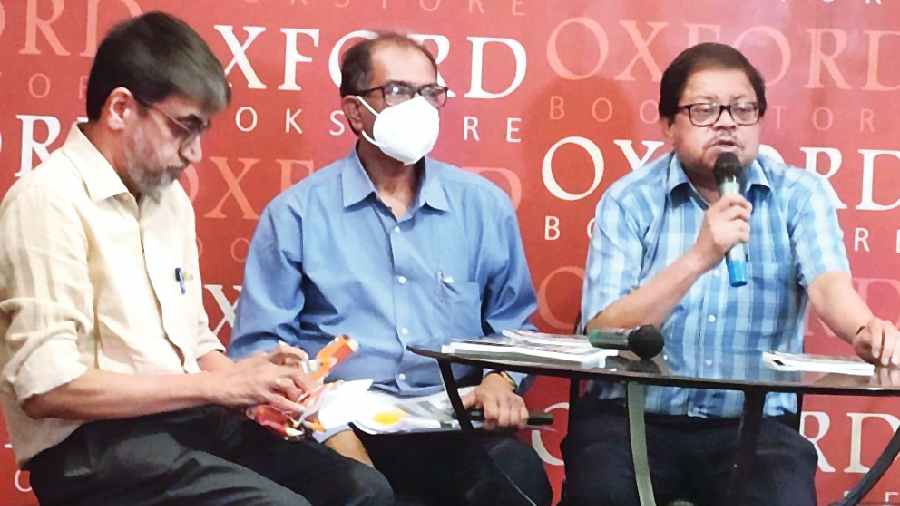Many migrant labourers from Bengal cast their votes in the 2021 Assembly polls in the state with the fear that their names would be struck off the electoral rolls if they did not, Jadavpur University vice-chancellor Suranjan Das said.
He was speaking at a programme to release a report by the Calcutta Research Group, titled “Migrants in Electoral Times”, on how migrant labourers featured in the Assembly elections of Bengal, Bihar and Assam.
The report was prepared by six researchers from the group — Abdullah A. Rahman, Anamika Priyadarshini, Ankur Tamuli Phukan, Gopal Krishna, Priyankar Dey and Rajat Kanti Sur.
“What is more important for Bengal, and I take it from the report itself, is that there was a subsumation of the despair and dissatisfaction of the migrants by the emerging identity politics based on anti-CAA discourse, anti-CAA movement,” Das said at the programme held late April.
“Perhaps, no other previous election makes the connection between voting and being a citizen so visible before the voters of West Bengal. And that, I think, was a distinct, unique political configuration in Bengal so far as the migrant issue was concerned,” said Das.
The VC referred to some of the observations contained in the report.
The report seeks to explain how the renewed surge of Covid cases, which coincided with the Bengal Assembly elections in April-May 2021, triggered the return of the migrant workers and how the issue of CAA-NRC-NPR — which the pandemic and resultant plight of migrant workers could displace from the popular discourse for some time — once again returned during the elections.
The Bengal elections were declared on February 26, 2021, and cases started to spike again from early March.
“Even before the states declared complete shutdowns, the migrant workers learning from the bitter experience of last year (2020) had started coming back en horde. In districts, north Bengal, Malda, Murshidabad or Purulia, which are the primary source of out-migration from West Bengal, polled high percentages of votes…. A look at the polling numbers gives us a sense of their participation in huge numbers,” says the report.
On elections held in the shadow of CAA-NRC-NPR, it says: “During our field work in the rural parts of West Bengal, we noticed that NRC and the contentious issue of citizenship was a major part of the political milieu in which the Assembly election was held.”
Das in his speech read out the following part of the report: “‘You will see the migrant labourers would vote in huge numbers this year. If they don’t, their names would be struck from the voter list,’ we (the researchers) were told during our visit to Ghasipur, Murshidabad. The village has a large number of its residents working in other states, most of whom are Muslims.”
He said the concern was shared with the researchers repeatedly by the migrants who had come back to Bengal.
The other speaker present at the release, Anirban Chattopadhayay, former editor of Anandabazar Patrika, said the Bengali identity also played an important role in the polls.
